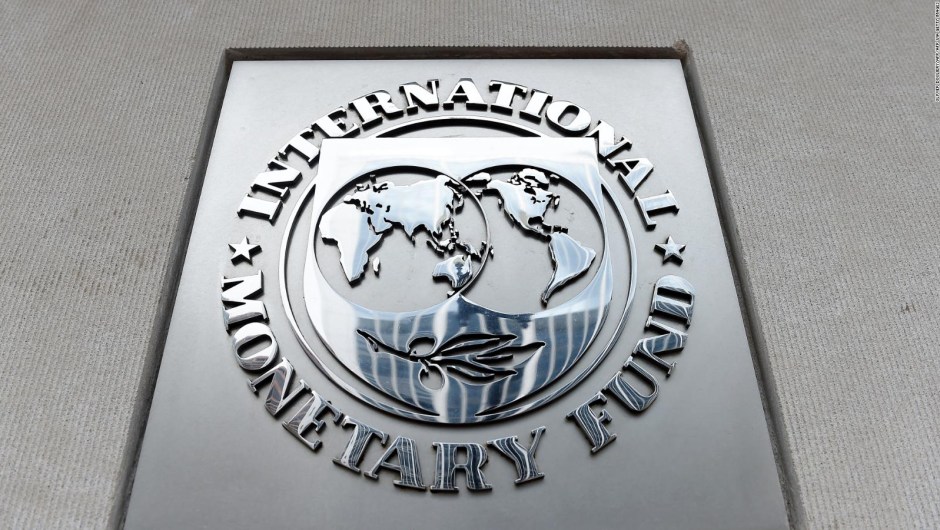(CNN Spanish) -
The International Monetary Fund (IMF) estimates a lower economic contraction for 2020 in Latin American and Caribbean countries than it had projected in June, but warned that the persistence of the pandemic is clouding the economic recovery.
It also estimates that only in 2023 will activity return to pre-COVID-19 levels, with an increase in poverty and inequality, among other "lasting scars."
In its most recent analysis, delivered within the framework of the autumn meetings of the World Bank and the IMF, the agency estimates that the contraction of real GDP will be -8.1% this year, with an uneven recovery between countries in 2021 of 3.6%.
In June, the agency had forecast a sharper contraction (-9.4%) for this year and a greater recovery (3.7%) in 2021. But in its new report, it reiterated that the projection is subject to a level of uncertainty. unusually high where the evolution of the pandemic will be a major source of risk.
Therefore, he recommended that countries focus on containing the spread of the virus and addressing the health crisis as public policy priorities.
The IMF recognizes that Latin America and the Caribbean is the worst hit region in the world in human and economic terms.
“With only 8.2% of the world's population (640 million people), the region had 28% of all cases (9.3 million) and 34% of all deaths (341,000) at the end of September.
The number of new cases continues to increase in some countries (Argentina, Costa Rica, Paraguay) while it stabilized in others, although at relatively high levels (Brazil, Peru).
The largest economies in the region (Brazil, Chile, Mexico, Peru) have some of the highest per capita death figures in the world and official reports probably underestimate the count, ”he described.
According to the IMF, the high number of deaths in the region was due to factors such as poverty, informality in labor markets and the inability to practice physical distancing in urban and densely populated areas, as well as low-income neighborhoods, which are crowded.
Also complicating the mitigation of the new coronavirus is the fact that governments have limited public resources and that testing and tracing capabilities were not strengthened.
The countries most and least hit
The body, chaired by Kristalina Georgieva, identifies the Caribbean nations as the hardest hit by their high dependence on tourism, which represents between 20% and up to 90% of economic activity.
He equated the sudden interruption in the arrival of tourists and local restrictions with a "heart attack" in their economies, "even though they were relatively successful in containing the spread of the coronavirus."
advertising
The report assures that Brazil, Costa Rica and Uruguay, among others, suffered less pronounced contractions and by July they had already returned to the trends seen in January.
For their part, the strong recovery of remittances, exports and low oil prices have contributed to the rebound in Central America, while other nations, such as Peru or Ecuador, have suffered broader collapses and economic activity still remained moderate in July.
The jobs landscape
The IMF warns that a large part of employment in the region is at risk from an informal labor market, concentration in small and medium-sized enterprises and the low ability to work from home, which amplifies the impact of the shock.
The agency also highlights that, unlike other crises, informal employment has not served to cushion the effect of recessions because it has been severely affected by covid-19.
It assures: "Women, youth and low-skilled workers (who were already vulnerable) suffered relatively greater job losses."
The body, which has 190 member countries, estimates that almost 45% of jobs in the region are concentrated in what it calls "intensive contact sectors" (restaurants, retail stores or public transport), compared to just over 30% in emerging markets.
In contrast, he adds, only one in five jobs can be done remotely, which represents half the share of advanced economies and below the emerging world average (26%).
These factors combined for the historic collapse of economic activity.
He estimates that the impact on employment will erase part of the social progress achieved up to 2015. Until the second quarter of 2020 - he explains - employment in Brazil, Chile, Colombia, Mexico and Peru had fallen by more than 30 million, with a special impact among workers with low academic level.
Despite the recovery of employment as economic activity resumes, IMF experts point to permanent income losses and a significant increase in poverty in 2020.
In its analysis document, the agency establishes that the fear of contagion will weigh on the consumption of goods and services that involve intensive contact, a situation that could be exacerbated by the erosion in income and savings levels even after the covid fades. -19.
For this reason, the IMF does not expect real per capita income in the region to return to levels seen before the arrival of covid-19, until 2025. If its forecast came true, the region would have marked another lost decade as it did in 1980, He says.
The global economic collapse and a subsequent incipient recovery will weaken Latin American exports, says the report, which estimates that they will fall 4% this year.
They see a more complicated outlook for tourism, affected by international travel restrictions and consumer fear of traveling.
This factor will influence an environment of lower oil prices.
However, it indicates that other commodities such as soybeans and metals will see a recovery in the medium term.
According to the IMF, these elements will affect the countries of the region to varying degrees.
It warns that the COVID-19 crisis will leave "lasting scars" on the economic growth potential of several countries, particularly those where support has been limited.
Bankruptcies, business closures and the postponement of business plans due to weak demand or uncertainty will keep investment depressed in the medium term.
Likewise, it anticipates the dismissal of experienced workers, a factor that improves productivity, which implies the destruction of human capital within companies.
IMF recommendations
It recommends that the public policies of countries, whose economic activity is affected by quarantines or closures, focus on ensuring that companies have sufficient liquidity, protecting employment and income, and developing medium-term fiscal consolidation plans to ensure the sustainability of the national debt.
For nations that are lifting restrictions, the IMF suggested that authorities focus on supporting the recovery, including activating structural reforms, and at a later stage, when recovery is assured, they should focus on rebuilding reserves such as the priority of fiscal policy.
Monetary policy must be accommodative, they explain, as long as inflation does not exceed the authorities' goal and inflation expectations remain anchored.
To contain potential risks to financial stability as a consequence of the crisis, the report stresses that the restructuring of corporate sector debt will be crucial to regain the financial health of viable companies.
For those that are not, they say, frameworks will be required to achieve efficient bankruptcy processes, which distribute losses among investors, creditors, owners, workers and the government.
Despite the deterioration of companies' financial balance sheets, the IMF considers that the region's banks remain resilient because “they entered the pandemic with a relatively solid base, with ample capital and liquidity buffers and low non-performing loans.
Most could maintain the required capital ratios, even in a deteriorating scenario ”.
However, once the recovery begins, the agency recommends rebuilding its capital to ensure long-term financial stability and to be vigilant against weaker financial institutions against the risk that the pandemic persists and causes a more prolonged and difficult recession.
FMIF International Monetary Fund



/cloudfront-eu-central-1.images.arcpublishing.com/prisa/2KVLLY26ZNGK3OCBRI676KYGKA.jpg)


/cloudfront-eu-central-1.images.arcpublishing.com/prisa/Q6UJ4IEP6ZGLZLS3MSHF7LNYOU.jpg)


/cloudfront-eu-central-1.images.arcpublishing.com/prisa/IOQ5LVJEOFAEZHGFMYWVXLFURI.jpg)